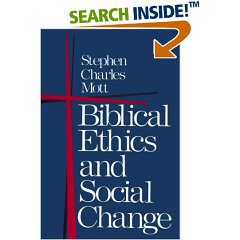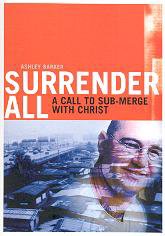After my first day in the classroom for DM331 – Micah Mandate: Seeking Justice for the Global Marginalised…there has been a change of plans. Instead of being able to review “Surrender All”, Steve (our facilitator) would like us to review one of the three key texts for the unit – those being [as per my reading list on the menu bar] Transforming Mission, Biblical Ethics and Social Change, and Walking with the Poor. Considering my new role for 2006 and beyond, I thought it best to read and review what is considered by many to be the best book on Mission, by the late David J. Bosch, “Transforming Mission: Paradigm Shifts in Theology of Mission.”
 I’ve only read the first 6 pages of the book, but my yellow highlighter has been going almost non stop. I want to share some stuff with you, and hopefully you will engage with me in this:
I’ve only read the first 6 pages of the book, but my yellow highlighter has been going almost non stop. I want to share some stuff with you, and hopefully you will engage with me in this:
WHAT IS MISSION?
This is very pertinent question, especially considering my new ministry area, but also in light of my ministerial assessment which is rapidly approaching (19/11). What is mission?
David Bosch, in the opening page of his tome writes, “Until the sixteenth century the term was used exclusively with reference to the doctrine of the Trinity, that is, of the sending of the Son by the Father and of the Holy Spirit by the Father and the Son.”[p1] So originally, the term mission had very little to do with us – as in, our actions – it was in relation to the action of God – God’s mission to creation.
In recent years, the terms ‘mission’ and ‘missional’ and ‘missiology’ have increased in use, but “Until the 1950s ‘mission’ referred to:
(a) the sending of missionaries to a designated territory,
(b) the activities undertaken by such missionaries,
(c) the geographical are where the missionaries were active,
(d) the agency which despatched the missionaries,
(e) the non-Christian world or “mission field”,
(f) the center from which the missionaries operated on the “mission field”
In a slightly different context it could also refer to:
(g) a local congregation without a resident minister and still dependent on the support of an older, established Church,
(h) a series of special services intended to deepen or spread the Christian faith, usually in a nominally Christian environment.
Theologically, the word ‘mission’ can be paraphrastically defined as:
(a) propagation of the faith,
(b) expansion of the reign of God,
(c) conversion of the heathen,
(d) the founding of new churches.”[p1]
In my application to the State Conference office of the denomination in which I serve, for assessment for suitability for ministry, I was asked to respond to the question, “What is mission?” A month ago, my answer was:
I find it difficult to separate the notion of ‘ministry’ from ‘mission’. To me, mission is what it means to be a follower of Jesus Christ. As a follower of Jesus, we wear the name of Jesus wherever we go – wherever we exist – wherever we work – by wearing his name, we are expressing to the people around us, in however we behave, what it means to follow him. Being a ‘missionary’ is trying to be the best ‘follower of Jesus Christ’ that we can be, not trying to make others into McChristians. I do not see Mission as something the church does, but something that the church is. Mission is an action – part of the paradox of being saved by grace, but being called to works. No longer is mission what we send others to go and do on our behalf, mission is how we as followers of Jesus Christ exist in and engage with our culture.
In light of David Bosch’s work, and my response – How would you define mission??













